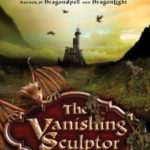Quality Is As Quality Does
The Washington Post reported this past Friday that . . .
Earlier this week, the Evangelical Christian Publishers Association announced the finalists for its annual Christian Book Awards in seven categories.
Noticeably absent is any Christian Speculative fiction title.
If you’ve been following SpecFaith of late, you’d know that voting to select the finalist for the Clive Staples award started yesterday. If you haven’t yet, check out the nominated list and the rules, and cast your ballot. This award focuses on speculative fiction.
Awards like these are intended to pick and showcase quality Christian fiction.
Some would suggest that such awards end up being popularity contests and that overall, Christian fiction lacks the high quality of the general market. Others disagree about quality. From the above Washington Post article:
Karen Watson, associate publisher of fiction at Tyndale — best known for the miraculously bestselling “Left Behind” series — laments that the “old snapshot for this category is fairly unyielding.” She suggests that people who scoff at Christian fiction probably haven’t read it lately. “Critics say that it is full of poorly written, simplistic stories with little literary quality. But that is an old snapshot. The quality is there for readers who are looking for an inspirational read,” Watson said.
Karen Watson isn’t the only one, considering she would be biased to say as much. The Publisher Weekly’s religion editor agrees:
Marcia Z. Nelson, a religion editor for Publishers Weekly, says many of these novels are better than literary snobs might assume. “At its best, it’s good commercial fiction. It’s certainly not as formulaic as it used to be; the explicit come-to-Jesus resolutions are few. The best of it is thoughtful and develops engaging characters, believable dialog and plotting that reels you in,” Nelson said.
The quality labels that Marcia Nelson mentions—thoughtful, engaging characters with believable dialog, plotting that reals you in—is reflected in my informal and unscientific poll on how readers judge quality last week.
Here is the raw breakdown of the categories and how frequently they were mentioned.
| 1. A compelling and engaging (entertaining) story. | 3 |
| 2. A well constructed plot. | 2 |
| 3. Distinctive characters who grow. | 3 |
| 4. Christian theme(s) integral to the plot. | 2 |
| 5. Beauty and power. | 1 |
| 6. Mentally engaging. | 1 |
| 7. Distinctive world building. | 1 |
| 8. Moral choices/challenge. | 1 |
| 9. Results in hope, not despair. | 2 |
So, what’s the beef?
Despite it being a small sample, it sounds like readers and publishers are on the same page as to what constitutes quality Christian fiction. Or are they?
After all, if their expectations matched, publishers should be able to pick winning books most of the time. Yet the truth is around 80% of a publisher’s annual book list will not earn out. So they are only hitting reader expectations of quality around 20% of the time.
The benchmarks of thoughtful, engaging characters with believable dialog, and plotting that reals you in isn’t objectively measurable.
What one person sees as quality, another sees as junk. Yes, there are those stories most people would say don’t work and stories most agree fire on all cylinders. Those are the ends of a Bell Curve, however. In the middle you have much more disagreement.
This is evident when classic works on Amazon are given one or two star reviews. No one book, no matter how popular and generally agreed is well written, is going to match everyone’s idea of what is a quality story.
So what is a speculative-fiction-writing Christian to do? How is a Christian who wants to support quality, faith-based story-telling going to find and read quality novels?
The answer to the first question is fairly simple. Read, write, and learn. Let the readers decide the quality. One learns to write quality stories by practicing writing and learning something each time you do. Not by focusing on rules for quality fiction itself.
Writing is one of the few arts where practice is frequently not expected. That first story isn’t seen as practicing, but the next bestseller if the writer can fix X, Y, and Z. Write it and let the readers decide its quality. Learn from them, then go write another story implementing what you’ve learned. Painters, musicians, sculptors, actors, all learn by doing and making corrections. No writer should expect anything less on the road to becoming a quality writer.
The answer to the second is a bit more complex. There are reviews, like the ones at SpecFaith. There is the Speculative Fiction library you can browse. Other places like Goodreads can give helpful reviews, or search the internet to find reviews on blogs. Then pay it forward by submitting your own review of what you’ve read so others of like-mind can find what they would consider quality Christian fiction.
What other ways can we encourage, support, and reward quality Christian fiction?











































First, I have a completely random question: what is the signficiance, if any, of the use of a picture of “Austrian writer Norbert Gstrein?” The only thing I could find on Google about him was a translated German Wikipedia article.
On the topic at hand: I think the best thing to promote any genre is to actually read books within it, determine taste and quality for oneself, and then share out genuine enjoyment. While that sentence may sound trite and obvious, I don’t believe it is either. I think too many times we put the cart before the horse. You are never going to be as effective at promoting a product as when you actually use it and/or enjoy it. If you don’t read Christian speculative fiction, it’s hard to know what’s good. If you don’t enjoy any, you would refer any. If you don’t speak about what you like, your friends won’t find out from you.
On the practical side, loaning books to friends and requesting books be purchased by your library are always good ways to get the word out.
On the photo, it’s there because he’s reading and this is about readers seeking quality. Not much more than that.
On your response, I agree. Readers read. Writers learn by reading as well. I included that in what a writer should do, so no arguments from me. Good answer.